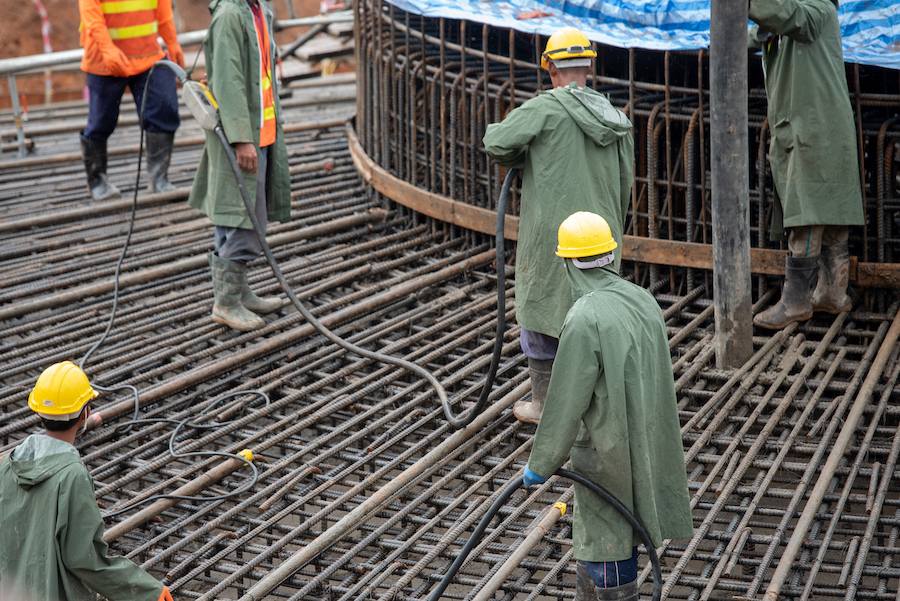
If you’re a business owner in the skilled trades, you’re probably used to feeling like you’re constantly chasing a revolving door.
Employees come and go as the wind blows, and skilled trades talent always seems to be in short supply, to say the least. As senior employees start to retire, you need to have people ready to take their place.
Many of you might be thinking that this is just the way things are, and there’s not much you can do about it.
But the fact of the matter is, there’s a lot you can do to improve employee retention in skilled trades.
So, in this article, I’m going to discuss four simple strategies you can employ to stop chasing that revolving door and retain more of your top talent.
How to Improve Employee Retention in Skilled Trades
Businesses in the skilled trades have a unique set of issues to address when it comes to retaining employees.
That being said, while many of the points below may be relevant to other industries, as well, these are some of the things I feel are most applicable to businesses in the skilled trades.
So, if you own a business that operates in the skilled trades industry and you’re dealing with problems related to employee retention, keep reading to find out how you can help mitigate these issues.
1) Leadership Skills
Even though many business owners don’t like to admit it, when it comes to issues with leading and retaining employees, more often than not, they’re part of the problem.
Being a leadership coach and a business owner myself, I’ve learned this first-hand.
A lot of people in leadership positions love to point fingers and place blame, but unfortunately, they don’t like to look themselves in the mirror and acknowledge the effect they might be having on the situation.
In any case, here are some things to keep in mind if you’re in a leadership position:
- Don’t be a hypocrite – you should adhere to the same rules you expect employees to follow
- Be consistent – don’t tell one employee one thing and another the exact opposite; they talk!
- Be responsive – don’t take forever to respond to your employees
- Don’t play favorites – you’ve got to treat employees equally
- Try to make time for your employees whenever you can
The points I made above are some of the most common complaints employees have about their bosses, so if you’ve caught yourself doing (or not doing) any of these things, it might be time to re-evaluate your own behavior and do a bit more work on your leadership skills.
2) Working Conditions
One of the most common complaints I’ve seen from workers in the skilled trades is that their working conditions are poor.
Often, these people have to work outdoors, and the amenities available to them tend to be pretty shoddy.

Whether it’s locker rooms, showers, or bathroom facilities, these basic comforts can be threadbare at best, or non-existent at worst.
In addition, many workers in the skilled trades have to endure incredibly long hours, and a lot of them end up suffering from burnout.
A survey of hundreds of construction industry workers found that issues with working conditions are one of their main reasons for leaving.
For example, 27 percent of respondents said they don’t like working in the cold, 26 percent said the hours are too long, and 11 percent said the on-site facilities are not good.
Luckily, there are many things you can do to improve working conditions for your employees.
If you work in the cold, doing something as simple as providing new hires with a warm pair of gloves can go a long way.
If you’re working outdoors, no matter what the weather, avoid renting the bottom-of-the-barrel bathroom facilities and try to get something a little nicer for your employees.
And if you’re expecting employees to work twelve-hour days six days a week, maybe you should do the math and reconsider hiring a “B” crew.
3) Show Your Appreciation
Considering how prevalent the problems with retention are in the skilled trades, you’d think employers would do more to show how much they appreciate the hard work of their employees.
But unfortunately, these kinds of gestures tend to be all too uncommon in this industry.
With that said, while many of you might think it’s frivolous, doing what you can to show your appreciation for employees can actually go a long way towards retaining them.
And it really doesn’t have to be that costly, either.
Taking your crew out to the bar to watch the big game while treating them to a few pints, or ordering takeout to the job site every once in a while might not seem like all that much, but you may be surprised how much it means to them.

Even a small gesture like telling them to take off early before the long weekend can do a lot to show them how much their hard work means to you.
At the end of the day, whatever you do to show employees your appreciation, anything is going to be better than nothing, and the more you do, the bigger impact it’s going to have towards retaining your top talent.
4) Clear Path to Promotion
Another thing that comes up a lot when it comes to the grievances of those who work in the skilled trades is that they feel like they’re lacking opportunities for promotion, or they don’t know what they need to do to get a promotion.
And if employees don’t think they’re going to be able to get a promotion, or they don’t know what’s expected of them in order to get that promotion, they’re going to think that this is just another dead-end job, and they’ll be more likely to quit as soon as they feel they have a better opportunity.
For example, in that survey I referenced above, respondents’ top three reasons for leaving included getting better offers, having other opportunities, or leaving to start their own businesses.
Also, 13 percent of respondents cited “lack of a clear career path” as a reason for leaving, and when they were asked what could be done to help retain more workers, 34 percent said employers should offer more options for advancement, and more promotion levels, which correspond to higher salaries.
Therefore, one of the best ways to improve employee retention in skilled trades is to offer employees the opportunity to get promotions, and just as importantly, make it clear to them exactly what it is they have to do to get those promotions. Career ladders are a great tool to show employees what they need to do to reach that next rung.
Do you own a business in the skilled trades industry and you’re having trouble retaining employees? Do you feel like you might be a part of the problem, and could use some help developing your leadership skills? I can help you get to the root of the problem and refine your capabilities as a leader. Schedule your free consultation today and let’s get started.
Business Leadership, Team Management